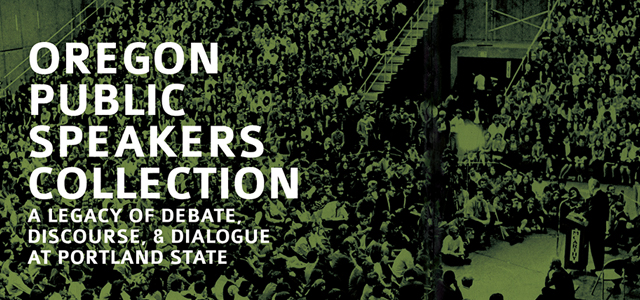Date
6-27-1978
Series
Ecosystems Lectures
Length
1 hour 29 minutes
Original Description
With Cooper, W. Ecosystems.
Notes
Michael A. Arbib, a computer scientist and neuroscientist, was founding chairman the Department of Computer and Information Science at University of Massachusetts, Amherst in 1970. In this lecture, Arbib stresses the importance of planning and management in a world of complex technology and limited resources.
This lecture is part of the "Ecosystems" series of lectures sponsored by Sigma Xi- Earth Resources Ltd.
Transferred and preserved by Portland State University Library’s Special Collections with the generous support of the Institute of Museum and Library Services through the Library Services and Technology Act, administered by the Oregon State Library.
Subjects
Ecosystems, Resource allocation
Original Format
Reel to reel, 3.75 ips, 4 track, mono
Rights
This digital access copy is made available as streaming media for personal, educational, and non-commercial use only. It cannot be reproduced in any form, distributed or played for commercial purposes. It is made accessible because of one or more of the following situations: the rights are owned by State Board of Higher Education, on behalf of Portland State University; Portland State University has permission to make it accessible; it is made accessible for education and research purposes under fair use; or there are no known restrictions on use. In the event that previously unknown information is shared that may change the status of this item, it will be immediately removed from public view until pertinent rights issues are clarified.
Persistent Identifier
http://archives.pdx.edu/ds/psu/11430
Recommended Citation
Arbib, Michael A., ""Environmental Simulation and Long-Term Planning"" (1978). Special Collections: Oregon Public Speakers. 177.
http://archives.pdx.edu/ds/psu/11430



Description
Transcript added September 23, 2020.
PSU Library Special Collections and University Archives presents these recordings as part of the historical record. They reflect the recollections and opinions of the individual speakers and are not intended to be representative of the views of Portland State University. They may contain language, ideas, or stereotypes that are offensive to others.